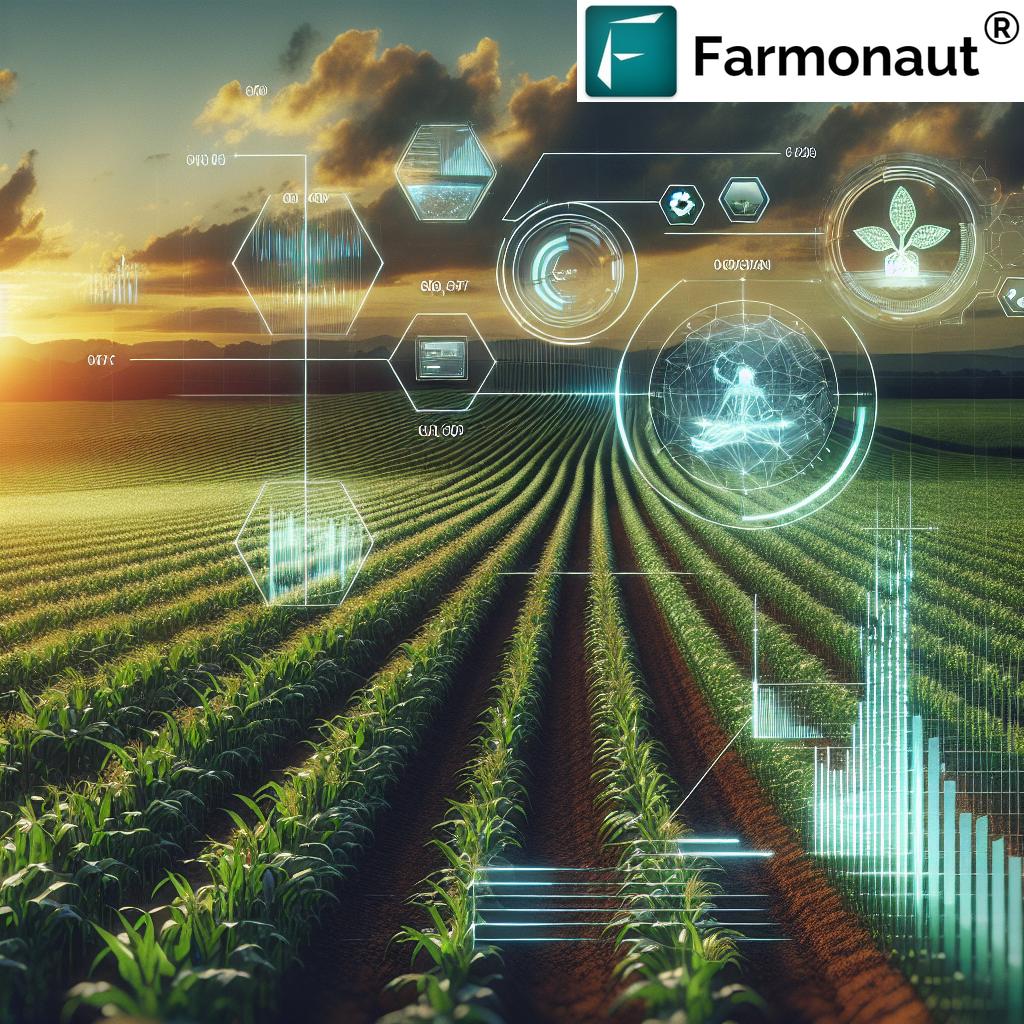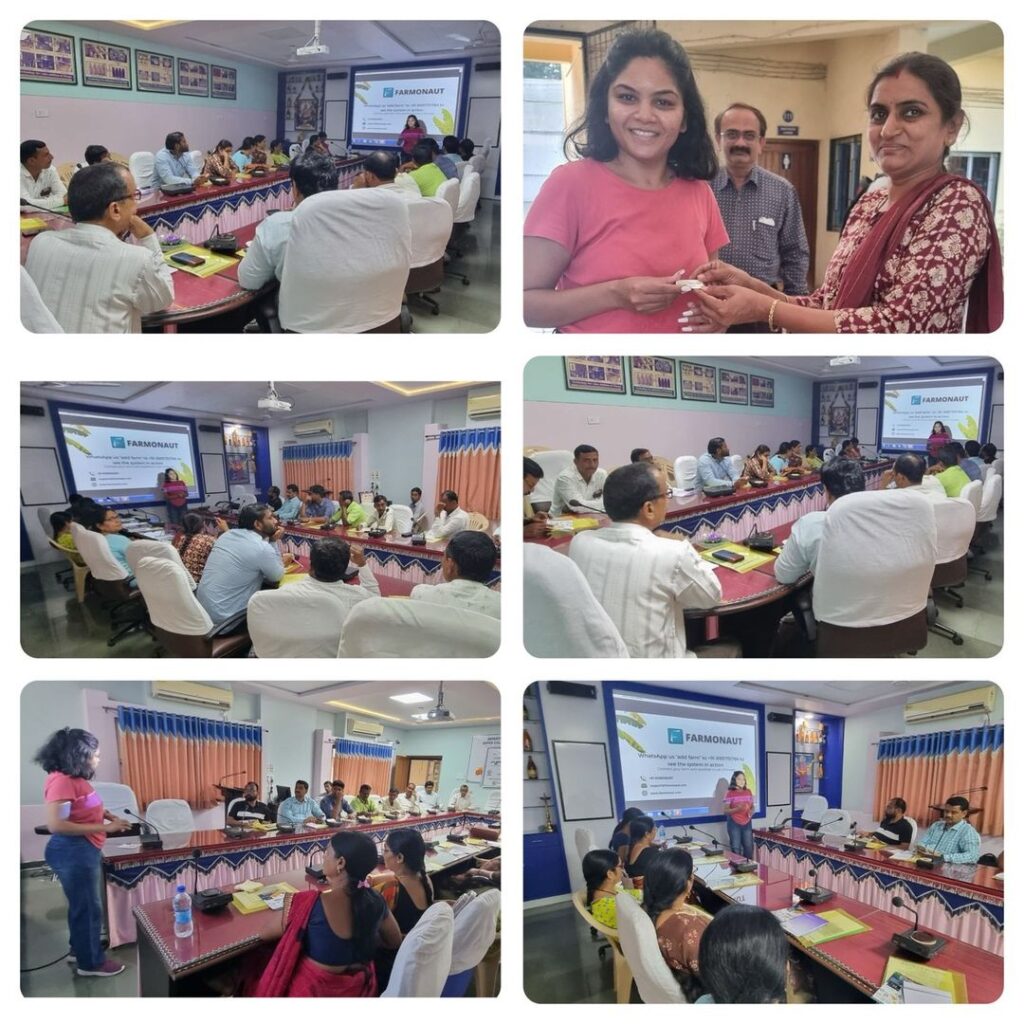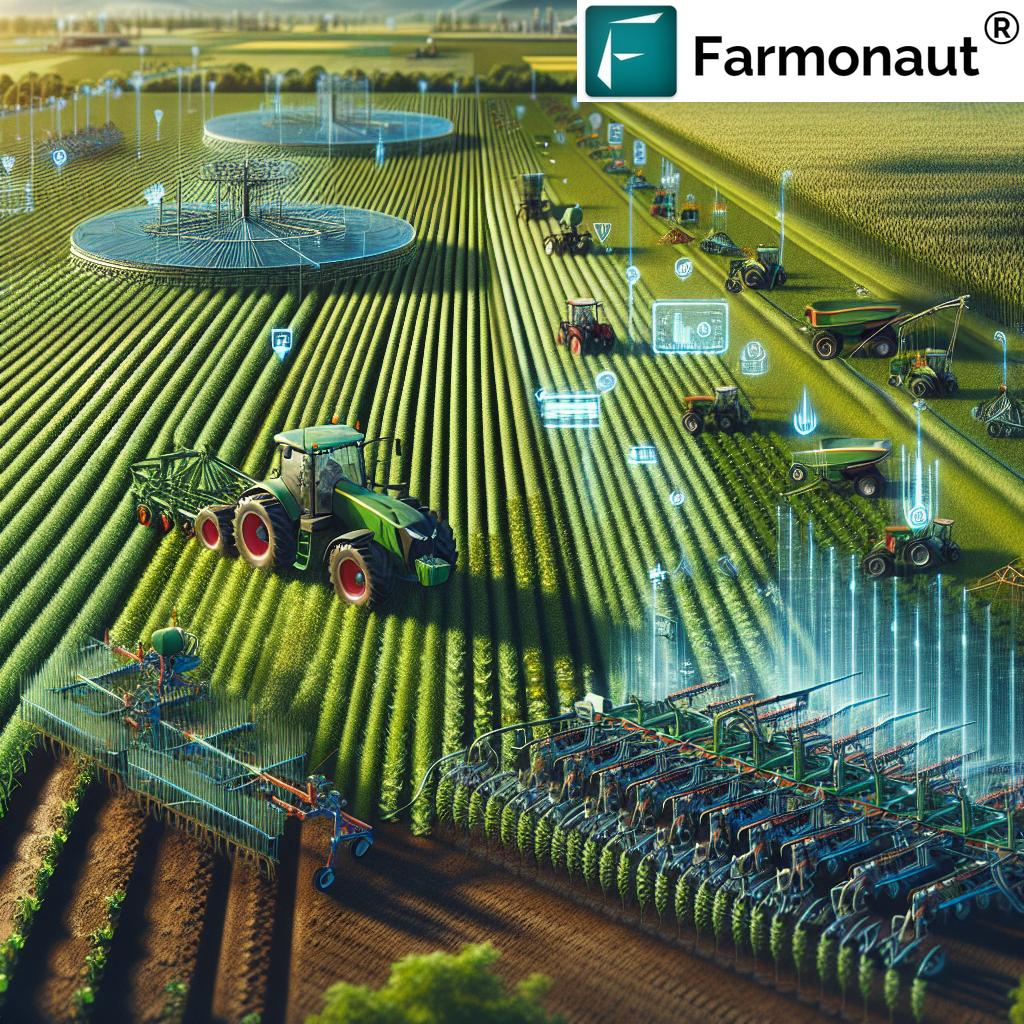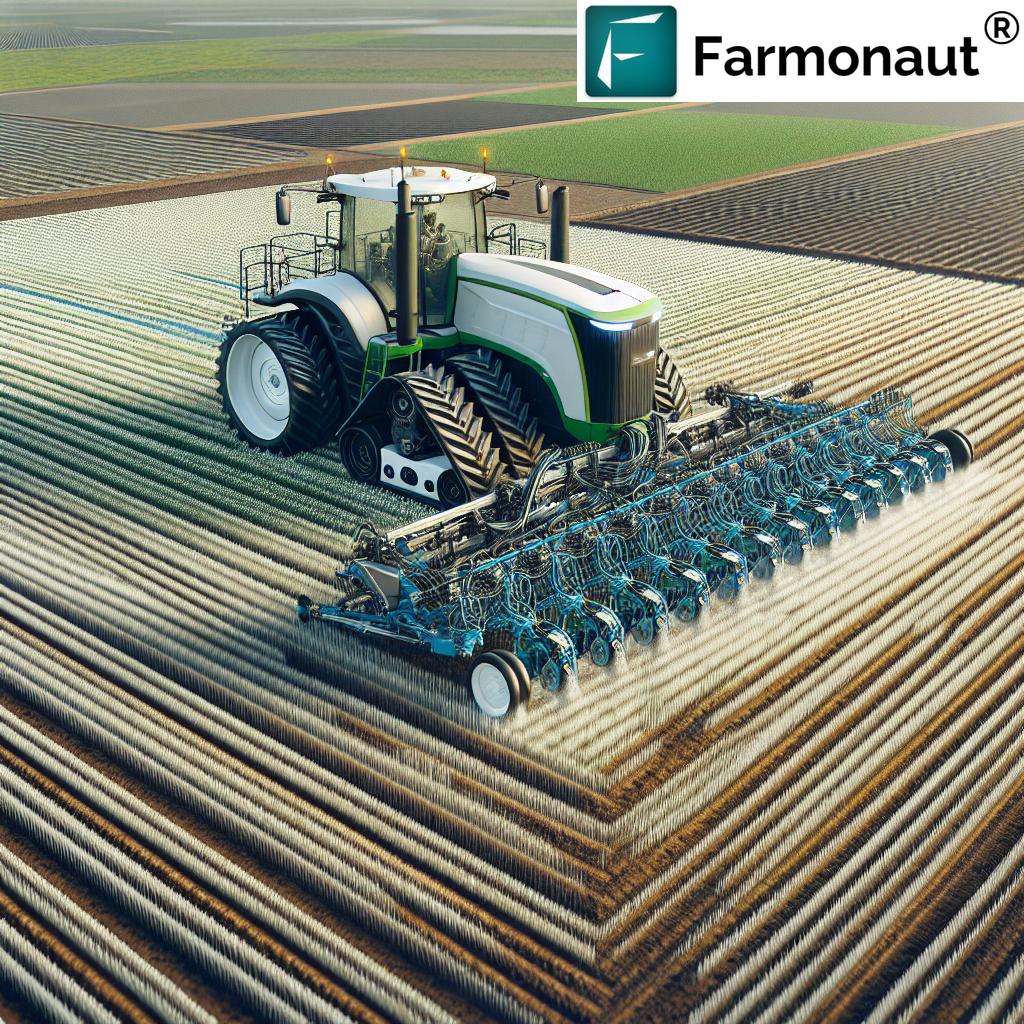Agriculture Technician Program: 7 Key Modern Skills for Modern Farming Success
“Over 80% of agriculture technician programs now include precision agriculture training modules in their curriculum.”
Introduction: The Role of the Agriculture Technician in Modern Agriculture
Agriculture is undergoing a technological revolution. As demand for food and sustainable resources grows, the agricultural industry seeks talented professionals capable of driving innovation, optimizing productivity, and ensuring environmental sustainability. Among the most vital experts in this journey are agriculture technicians—skilled practitioners who blend science, technology, and field expertise to empower farms, agribusinesses, and the wider sector.
Agriculture technician programs prepare students for diverse, impactful careers in today’s dynamic agricultural landscape. Through rigorous training in areas like precision agriculture training, plant science, and agricultural equipment maintenance, graduates develop the skills needed to thrive in roles ranging from crop monitoring to farm management, equipment operation, and research.
In this comprehensive overview, we explore the structure, curriculum, and core competencies of agriculture technician programs, highlight 7 key modern skills every technician should master, and show how leveraging the latest technological innovations can drive productivity and create new career opportunities. Whether you are an aspiring technician or someone seeking to understand this evolving profession, this guide provides a roadmap to mastering modern farming.
Educational Pathways for Agriculture Technicians
The journey to becoming a skilled agriculture technician often begins at specialized institutions, technical colleges, and universities that offer focused certificate or associate degree programs. These agricultural technology education tracks provide a robust scientific foundation alongside practical, hands-on training designed to address the needs of both local and global farming sectors.
Typical Pathways:
- Certificates (College of the Desert – Agriculture Technician Certificate)
- Technical Diplomas (NTC Agronomy Technician)
- Associate Degrees in Agricultural Science, Precision Agriculture, or Agribusiness
Through dedicated curriculum, students master subjects across soil science and nutrient management, plant science, entomology, pesticide and fertilizer application, agricultural equipment operation, and more. Curricula increasingly stress precision agriculture training—equipping graduates to harness digital tools, satellite imagery, and data analytics for advanced resource management and sustainable farming practices.
Institutions Leading the Way:
- FVTC Precision Agriculture Technician Program (emphasizes GPS, GIS, technology integration)
- Pratt Community College Agriculture Power Technology (machinery, maintenance & repair)
“Modern farming techniques can increase crop productivity by up to 25% when applied by trained agriculture technicians.”
Agriculture Technician Program: 7 Key Modern Skills
To thrive in today’s agriculture industry, technicians must gain more than just classical training. The paradigm has shifted towards a data-driven, technology-forward approach, blending traditional agricultural knowledge with cutting-edge innovations. Below, we identify the seven most critical modern skills required to excel:
- Soil Science and Nutrient Management
- Precision Agriculture & Technology Integration
- Pest Management in Agriculture & Integrated Control Techniques
- Cropping Systems and Plant Science
- Agricultural Equipment Operation and Maintenance
- Data Interpretation & Advanced Resource Management
- Sustainable Farming Practices
The development of each skill area is embedded in formal training modules, hands-on fieldwork, and often, the use of real-time monitoring and digital applications. Next, we’ll break down each skill—its relevance, impact on productivity, and how it connects with both current industry needs and future technological advances.
1. Soil Science and Nutrient Management
Mastery of soil science and nutrient management forms the backbone of any successful agriculture technician’s toolkit. Effective soil analysis enables improved crop selection, informs fertilizer application, and supports the design of sustainable farming systems. By studying soil properties (structure, organic matter, pH, moisture), technicians can advise on best practices for fertility and environmental resilience. Modern methods leverage soil mapping, laboratory diagnostics, and remote sensing to optimize crop production.
- Key Topics: Soil sampling, nutrient cycles, soil amendments
- Training Focus: Utilizing lab and satellite data to inform management decisions
2. Precision Agriculture & Technology Integration
Precision agriculture training is at the forefront of modern agricultural technology education. By leveraging devices such as GPS receivers, GIS, drones, and satellite platforms, technicians can monitor crop growth, assess variability, and make data-driven recommendations.
- Key Technologies: GPS-guided machinery, Farm management software, Remote sensors, Satellite data
- Training Focus: Data analysis, Digital mapping, Smart device integration
- Use case: Real-time large-scale farm management platforms enable tracking of multiple fields, crop health alerts, and seamless resource allocation.
At Farmonaut, we are dedicated to making precision agriculture accessible and affordable. Our solutions provide satellite-based monitoring, AI-driven advisory, and climate-smart tools, supporting both individual farmers and advanced agribusinesses worldwide.
3. Pest Management in Agriculture & Integrated Control Techniques
Pest management in agriculture is critical for preventing crop losses and maintaining ecological balance. Technicians learn entomology (study of insects) and integrated pest management (IPM), gaining expertise on control methods that minimize chemical usage and maximize sustainability. This includes biological control, pheromone traps, and application of targeted pesticides.
- Identifying pest species and life cycles
- Using data, traps, and satellite alerts for early pest detection
- Implementing IPM strategies for economic and environmental benefit
Farmonaut supports pest monitoring by leveraging real-time satellite imagery and AI analytics, helping users get early alerts for pest infestations, and optimizing chemical application windows.
4. Cropping Systems and Plant Science
In-depth plant science and an understanding of cropping systems are essential to optimize cultivation techniques, manage growth cycles, and boost productivity. Technicians study plant biology, anatomy, physiology, and genetics.
- Designing crop rotation and companion planting strategies
- Monitoring growth stages using advanced technologies
- Maximizing plant health through informed nutrient and disease management
Examples include integrating knowledge of agronomy and crop production for planning and scaling both monoculture and diverse crop systems.
5. Agricultural Equipment Operation and Maintenance
Modern farming is heavily reliant on advanced machinery and technologies. Mastery of agricultural equipment maintenance, diagnostics, and operational best practices ensures uptime and cost efficiency.
- Training in repair of tractors, combines, drones, and smart implements
- Daily service checks and preventive maintenance routines
- Safe, compliant operation of heavy equipment
Graduates often pursue rewarding careers as Farm Equipment Mechanics and Service Technicians in both on-farm and commercial environments.
Precision Agriculture Training & Modern Farming Techniques
As digital innovations continue to transform the agriculture industry, precision agriculture training is foundational for any technician program. The best programs integrate modules on satellite data interpretation, smart device management, resource optimization, and analytics.
- Satellite Crop Health Monitoring: Farmonaut’s carbon footprinting tools help track field emissions and ensure farms stay sustainable.
- Blockchain Traceability: For supply chain transparency, see Farmonaut’s product traceability solutions—vital for food safety and authenticity.
- Fleet Management: Optimize logistics and cut costs with farm fleet management applications.
- Crop Loan & Insurance Verification: Satellite-based verification makes loan and insurance claims smooth, transparent, and fraud-resistant.
For those who want to integrate Farmonaut’s analytics into custom apps or dashboards, our API access and developer documentation make building agtech solutions simple and scalable.
Affordable Precision Agriculture: Farmonaut Subscriptions
At Farmonaut, our goal is to democratize access to precision agriculture training and state-of-the-art farm monitoring—empowering more users, everywhere, to benefit from advanced insights.
6. Data Interpretation & Advanced Resource Management
The digitalization of agriculture means technicians must interpret increasingly complex datasets—including weather forecasts, sensor outputs, satellite maps, and financial analytics. Skills in digital applications, data visualization, and smart management tools empower practical decision-making.
- Statistical analysis and field mapping
- Custom resource allocation using analytics
- Balancing yields with sustainability goals
Strong data skills bridge practical research with field application, forming a vital link in modern farming.
7. Sustainable Farming Practices
Sustainability is at the heart of modern agriculture. Technicians must help implement sustainable farming practices that prioritize biodiversity, reduce chemical load, and improve soil health while maintaining high productivity.
- Promoting crop rotations, cover crops, and reduced tillage
- Converting waste to biofuel or organic fertilizers
- Tracking carbon emissions for regulatory compliance
At Farmonaut, our carbon footprint tracking tools, AI-based advisories, and blockchain traceability help our users drive sustainability across the agri-food value chain.
Comparison Table: 7 Key Skills at a Glance
| Skill Name | Description | Relevant Training Module | Estimated Impact on Productivity (%) | Sustainability Contribution |
|---|---|---|---|---|
| Soil Science and Nutrient Management | Analyzing soil properties and advising on optimum nutrient strategies. | Soil Analysis, Fertility Science | 15–20% | Reduces chemical runoff; improves soil health |
| Precision Agriculture & Technology | Implementing digital monitoring, GPS, GIS, and variable rate tech | Precision Ag Tech, Data Management | 20–25% | Optimizes inputs, reduces waste, enhances yields |
| Pest Management & Integrated Control | Designing and executing economic and ecological pest control methods | Entomology, Integrated Pest Management | 12–15% | Minimizes pesticide use, protects ecosystems |
| Cropping Systems and Plant Science | Understanding crop biology, variety selection, rotation planning | Plant Biology, Crop Science | 10–15% | Boosts biodiversity, soil recovery |
| Agricultural Equipment Operation & Maintenance | Operating, maintaining, and repairing modern farming machinery | Equipment Operation, Machinery Maintenance | 12–18% | Reduces breakdowns, energy use |
| Data Interpretation & Advanced Resource Management | Using analytics for field, fleet, and input optimization | Digital Agriculture, Analytics | 10–20% | Supports precision, reduces wastage |
| Sustainable Farming Practices | Applying stewardship, carbon tracking, and regenerative methods | Sustainability in Agriculture | 8–12% | Enhances resilience, protects resources |
Specialized Agriculture Technician Programs & Advanced Skills
Many institutions and technical colleges offer specialized tracks for technicians seeking focused career opportunities across the farming sector:
-
Agronomy Technician Programs: In-depth agronomy and crop production, pest management, and soil systems
Example: NTC’s Technical Diploma -
Precision Agriculture Technician Programs: GPS, GIS, data integration, and resource management for high-tech crop operations
Example: FVTC’s Precision Agriculture Program -
Agricultural Power Technology Programs: Maintenance and advanced repair of tractors, machinery, and smart devices
Example: Pratt CC’s Agricultural Power Technology
Core Subjects Covered:
- Soils & Plant Nutrition
- Entomology
- Plant Biology and Crop Science
- Pesticide and Fertilizer Application
- Machinery Operation and Service
These advanced programs offer real-world learning, blending field labs, digital toolkits, and industry partnerships, preparing graduates for high-demand agriculture technology roles.
Curriculum & Training: Essential Knowledge Areas
The curriculum of a reputable agriculture technician program integrates both scientific theory and hands-on practice. Key study modules include:
- Soil Science and Plant Nutrition: Soil sampling, nutrient cycles, fertility management
- Entomology: Pest identification, beneficial insects, management methods
- Plant Science: Biology, anatomy, growth cycles, disease control
- Pesticide & Fertilizer Application: Safe handling, application rates, environmental safety
- Agricultural Equipment Operation: Machine maintenance, diagnostics, safety checks
- Farm Operations Management: Resource scheduling, staff management, business skills
- Technology in Agriculture: Use of digital tools, mapping, satellite data, software
Accredited curriculum ensures students are ready for both field-based and lab/office-based roles in farm management, research, sales, or technology deployment.
Career Opportunities & Paths in Agriculture Technology
The evolution of agri-food systems, climate resilience goals, and intensity of technology use in modern farming practices have diversified careers in agriculture technology:
- Agricultural Technician: Overseeing and optimizing daily operations on farms or with agribusinesses
- Precision Agriculture Technician: Utilizing data, sensors, and analytics for smarter crop production
- Agricultural Equipment Technician/Mechanic: Specializing in maintenance and repair of farm machinery and smart implements
- Agronomy Technician: Advising on soil health, crop selection, production planning, and pest management
- Resource/Fleet Manager: Managing vehicles, logistics, and input deployments at scale
- Crop Research Assistant: Working with research teams to develop new varieties, control methods, and management innovations
- Agricultural Sales Representative: Connecting farmers to new equipment, chemicals, advisory services, and software
Graduates are in high demand due to the scarcity of advanced skills—with strong starting salaries, flexible career paths, and broad international mobility. Emphasis on sustainability and advanced technologies means that future-proof skills, such as satellite data interpretation, digital integration, and ESG monitoring, are top priorities.
Frequently Asked Questions (FAQ) – Agriculture Technician Program
-
What qualifications do I need to enroll in an agriculture technician program?
Most programs require a high school diploma or equivalent. Some institutions may request basic science or mathematics coursework, especially for precision ag tracks. -
What is the career outlook for agriculture technicians?
The US Bureau of Labor Statistics and industry groups project above-average job growth for those with technical and digital skills, especially as precision agriculture and sustainable farming practices expand globally. -
Can Farmonaut’s platform be used as part of my agriculture technician training?
Absolutely. Farmonaut offers affordable, satellite-based farm management, API access, and digital advisory tools, perfect for students, technicians, and educators interested in real-world precision ag applications. -
Which specialty program is best for my career goals?
If you’re interested in machinery, an Agricultural Power Technology program is ideal. Those with a passion for data and high-tech agriculture should consider Precision Agriculture Technician Programs, while crop and soil enthusiasts might opt for Agronomy Technician Programs. -
Are there online and mobile resources available for field use?
Yes! Farmonaut’s platform is available as a web app, Android app, and iOS app, letting users manage operations, monitor crops, or access training anywhere. -
How do I incorporate sustainable practices into my technician role?
By focusing on sustainable farming practices modules and leveraging tools for emissions tracking, reduced chemical usage, and field analytics (e.g., Farmonaut’s carbon footprint tracking), you can play a key role in sustainability.
Conclusion: Building a Productive & Sustainable Future through Agriculture Technician Programs
Agriculture technician programs provide the foundation for a new generation of experts ready to integrate scientific principles, advanced technology, and proven best farming practices. By mastering both traditional approaches and cutting-edge digital skills, graduates play a pivotal role in building resilient food systems, supporting farmers and agribusinesses worldwide, and advancing industry-wide sustainability missions.
The shift towards precision agriculture and sustainable methods is transforming how we grow food, manage land, and train the next generation of professionals. As providers of satellite-driven, AI-enhanced farm management solutions, we at Farmonaut are proud to be part of this transformation, supporting education and the application of new skills on the world’s farms, forests, and agribusinesses.
Ready to launch your career in agriculture technology? Explore the latest training programs, seize opportunities in both traditional agriculture and digital agtech, and stay connected with practical, scalable platforms like Farmonaut for ongoing professional growth.















